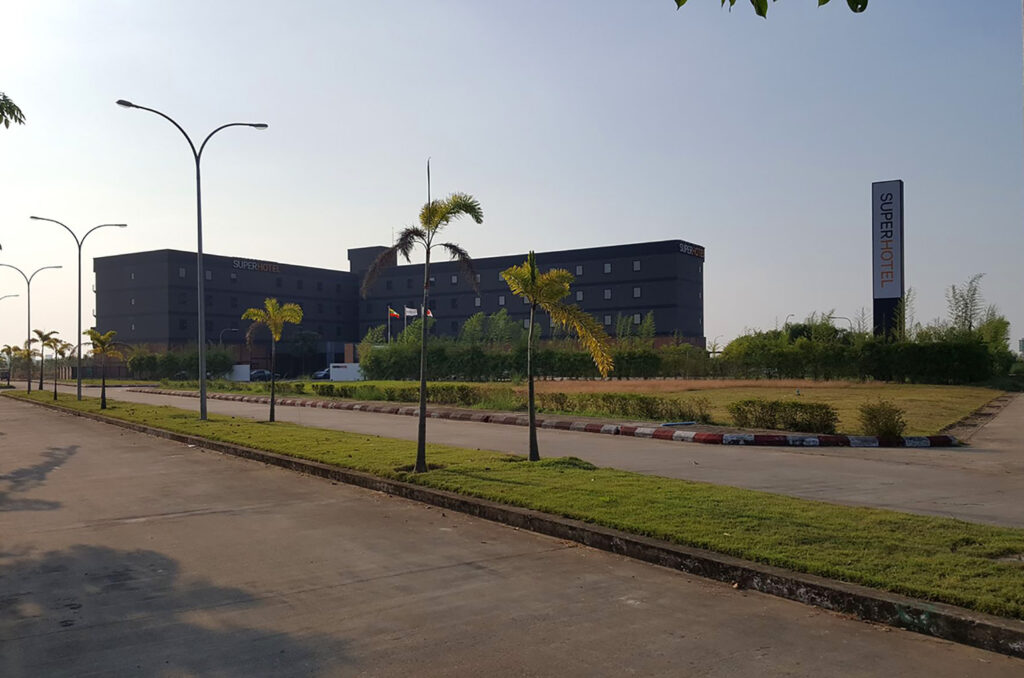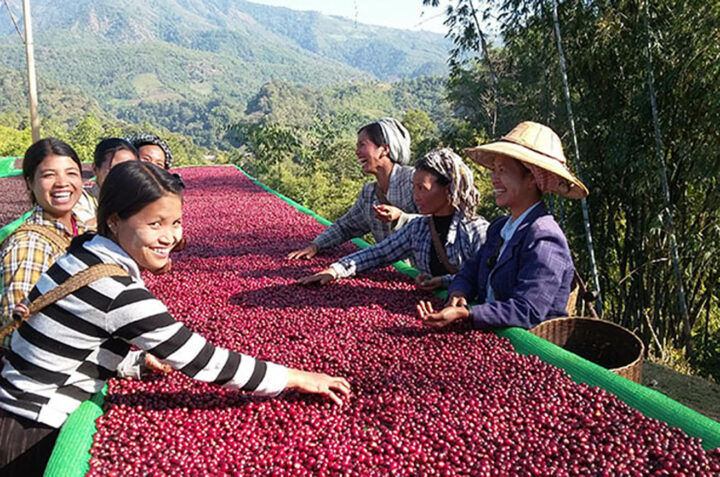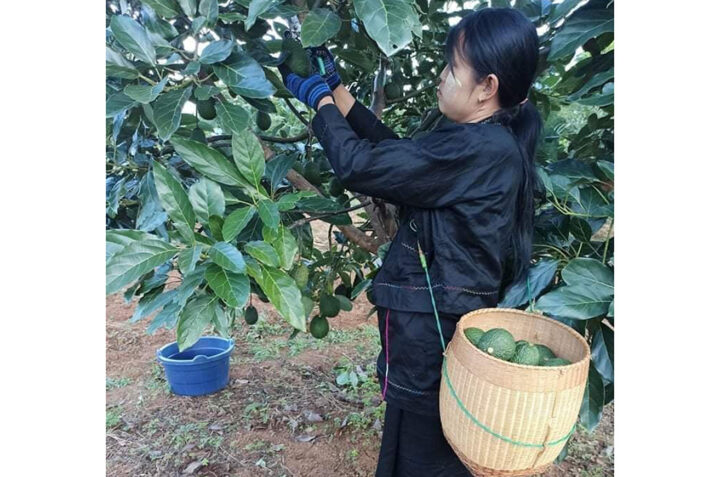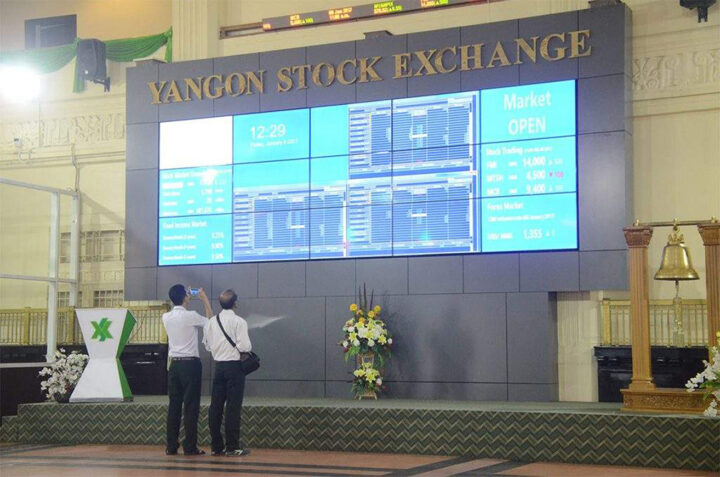![]() — หน้าแรก — เกาะติดข่าว
— หน้าแรก — เกาะติดข่าว
ข่าวเศรษฐกิจและธุรกิจประจำสัปดาห์
-

The bilateral trade between Myanmar and Japan hits nearly USD $ 2 billion in the past 2019 – 2020 financial year
Myanmar’s bilateral trade with Japan reached almost US$2 billion in the financial year 2019-2020, with exports surpassing imports, according to figures updated by the Department of Trade under the Ministry of Commerce in the second week of November.Myanmar transported commodities worth about US$1.355 billion to Japan in the financial year 2019-2020, a decrease of some US$75 million when compared to the same period last year. The Southeast Asian nation imported goods valued at about US$574 million from the East Asian country in the same period, earning over US$780 million trade surplus. Myanmar’s exports to Japan in 2019 saw US$1.43 billion and imports from Japan were valued at US$502 million. Myanmar mainly freights clothing, footwear, marine and agricultural products to Japan and imports car, electronic equipment, iron, steel, medical apparatus, and machinery from the East Asian country. In terms of foreign investments in Myanmar, Japan ranks the 10th place with nearly US$2 billion invested in Myanmar, according to the government’s data. So far, total investments by over 400 Japanese companies in 150 businesses in Myanmar amounted to around US$2 billion. -

The freight rates spiked to triple in Myanmar due to the pandemic-induced container shortage
Pandemic-induced container shortage pushed up the freight rates to almost triple in Myanmar, businesspersons in the logistic industry shared their opinions. The container shortage has become the biggest disrupter in shipping amid the coronavirus impacts, on the back of robust demand on the Asia-Europe and transpacific trade. Container shipping costs are drastically surging. The shipping cost in Asia has increased from three-fold to five-fold from last year’s rates. Container shortage is forcing up the shipping rates and also exacerbating other additional costs. The empty containers are desperately needed in Asia, but they are scattered at the ports across Europe, the experts pointed out. -

Myanmar Investment Commission (MIC) will grant permit on the raw sesame, peanut import upon of concerned Ministries
Myanmar Investment Commission (MIC) will grant a permit on the raw and sesame seeds importation proposal if the ministries concerned will give the go-ahead, said U Thant Sin Lwin, Director-General of the Directorate of Investment and Company Administration (DICA). “We have to ask for the opinions of the Ministry of Commerce if the proposal is related to import/export business. For pulses such as beans and sesame seeds, we call for opinions from the Ministry of Agriculture Livestock and Irrigation. We will continue the processing upon the response of the ministries concerned,” he affirmed. The ministries balance on local production and harvest season. Also, they assess whether the imported goods are suitable for the domestic market. The commission will issue the permit upon the approval of the ministries concerned, he added. -

Myanmar’s Foreign Direct Investment (FDI) topped USD $209.616 million as of 25 November in the 2020 – 2021 financial year
Myanmar has attracted US$209.616 million in foreign direct investments as of 25 November in the current financial year2020-2021 started on 1 October, including the expansion of capital by the existing enterprises, as per the statement of Myanmar Investment Commission (MIC). The figures also include $9.86 million in investments in Thilawa SEZ under the Special Economic Zone Law. According to the statistics, 14 foreign enterprises have obtained permits from MIC and endorsements from regional and state Investment Committees between 1 October and 25 November in the current FY under the Myanmar Investment Law, bringing in the capital of $65.786 million. Amid the COVID-19 concerns, foreign direct investments flow into many types of businesses, including the garment enterprises, MIC stated. -

The ASEAN and EU’s new online customs transit system (ACTS) has set to accelerate trade in the ASEAN region
The private sector in ASEAN now has access to a powerful new online system, the ASEAN Customs Transit System (ACTS), which will reduce intra-ASEAN trading challenges and enable companies to benefit fully from the ASEAN Economic Community (AEC) and the free movement of goods across the ASEAN region. In 2017, ASEAN Economic Ministers set the twin goals of reducing trade transaction costs by 10% by 2020 and doubling intra-ASEAN trade between 2017 and 2025. To realize this goal, the ASEAN Customs Transit System has been developed to allow businesses to lodge e-transit declarations directly with ASEAN Customs Authorities and to track the movement of their goods from loading at departure to delivery at the final destination. “The implementation of the ASEAN Customs Transit System plays a vital role in facilitating seamless movement of goods in the region. I believe the system would be an excellent tool in enhancing ASEAN’s trade and production networks as well as establishing a more unified market for its firms and consumers,” said Dato Lim Jock Hoi, the Secretary-General of ASEAN. “The ACTS could also support post COVID recovery to accelerate the transit movement of medical supplies, vaccines and Personal Protective Equipment within the Member States,” he added. -

Myanmar’s coffee exports have fallen by the half of this year due to the weak demand from foreign market by the coronavirus
Myanmar’s coffee export has fallen by half this year on the weak demand triggered by the coronavirus. Typically, Myanmar exports about 500-600 tonnes of coffee to external markets. The volume plummeted to 300 tonnes this year, said U Thi Ha, general secretary of Myanmar Coffee Association. Following the development of a vaccine for the COVID-19, the association is expecting a recovery of the market next year. The impacts of coronavirus hurt the coffee industry as the lockdown, and physical distancing caused a reduction in consumption. The COVID-19 crisis changed the dynamics of coffee consumption this year, and roasters, cafe owners and distributors are identifying specific trends in Asian markets that may expedite recovery to a new normal, according to ASEAN Coffee Federation. -

The avocado growers urged to expand the cultivation with pedigree plants amid high demand from Europe market
Myanmar’s avocado has market potential in European countries, and so, Myanmar Avocado Producers and Exporters Association urged the growers to expand the cultivation with the pedigree plants only. A half tonne of Myanmar’s avocado produced by grafted avocado trees was sent to England on a trial basis and it gave good feedback. Now, Germany and Italy are also proposing to buy Myanmar avocado. “We have agreed to export 30 tonnes as a preliminary event. We exported only a half tonne of avocado by air amid the COVID-19 crisis,” said U Kyaw Soe Min, joint secretary of the association. However, air freight forwarding is not profitable. Among Amara Variety (local variety), Hass and Buccaneer varieties, Buccaneer variety does not last longer than the other two. The foreign buyers prefer Hass and Amara varieties. They want the second batch of export. “This year, the grafted avocado tree season is going to end. The association is making an effort to export them in the post-coronavirus era. A tonne of avocado fetches US$3,500-$4,500 in the international market. The domestic demand is also high, and the price moves in the good range of K7,500 and 12,500 per kilo in the domestic market. It takes 21 days to ripe under normal room temperature while the avocado in cold storages is not ripe yet,” said U Kyaw Soe Min, joint secretary of the association. -

The import of CMP raw materials plunged to USD $264.7 million as of 20 November in the current 2020 – 2021 financial year
Imports of raw materials by CMP businesses touched a low of US$264.7 million as of 20 November in the current financial year 2020-2021, which fell from $332 million registered in the previous 2019-2020FY, according to the Ministry of Commerce. The figures reflected a decrease of $67 million, the Commerce Ministry’s data showed. At present, some CMP garment factories have shut down due to the COVID-19 negative impacts, leaving thousands of workers unemployed. The Covid-19 badly batters the labour-intensive enterprises, the Directorate of Investment and Company Administration stated. To deal with the shortage of raw materials for the CMP garment factories in Myanmar, the Ministry of Commerce, the Myanmar Garment Manufacturers Association and the Chinese Embassy in Myanmar, the China Enterprise Chamber of Commerce in Myanmar (CECCM) have jointly imported raw materials through border trade channels and airlines. However, import values of raw materials by CMP businesses in the past FY2019-2020 dropped to $2.17 billion, which plunged from $2.37 billion registered in the FY2018-2019. Myanmar’s manufacturing sector is primarily concentrated in garment and textiles produced on the Cutting, Making, and Packing basis, and it contributes to the country’s GDP to a certain extent. -

The foreign investors hold 13.4 percent of FMI shares in equity market as of the end of November in 2020
Foreign investors have purchased 4,460,060 shares of First Myanmar Investment (FMI) on the Yangon Stock Exchange (YSX) as of November-end, holding 13.47 per cent of shares, according to statistics released by the exchange. The upper limit for foreign shareholding amount is at 14 per cent with 4,635,357 shares. The foreign investors are about to reach the limit for shareholding, and consequently, the status of buy order acceptance is suspended on 1 December 2020. The Securities and Exchange Commission of Myanmar (SECM) has allowed foreigners to invest in the local equity market from 20 March 2020. The foreign shareholding amount stood at 4,509,475 shares of three listed companies on the exchange as of November-end. At present, shares of six listed companies — First Myanmar Investment (FMI), Myanmar Thilawa SEZ Holdings (MTSH), Myanmar Citizens Bank (MCB), First Private Bank (FPB), TMH Telecom Public Co. Ltd, and Ever Flow River Group Public Co., Ltd (EFR) — are available for local investors for trading. Of them, FMI, MTSH, TMH and EFR accepted foreign shareholding, and FPB is for block trade only. The foreign shareholding ratio of the companies on the exchange, except FMI, is less than one per cent. -

Myanmar Rice Federation (MRF) urged traders to sign contract and strictly comply with trade regulations
Myanmar Rice Federation (MRF) has asked the traders to enter into a firm contract and strictly adhere to trade regulations. On 27 November, the officials of MRF and Rice Depot (Muse) discussed on rice export through Muse land border. At the coordination meeting, they highlighted current border trade situations. These matters will come forward to the governments of the two countries, selling to the authorized companies with rice import quota licence and needs for the firm contract. Legal trade channel through the border to China is crucial in Myanmar’s rice industry. Therefore, the federation and rice depot (Muse) also agreed to extend their coordination. At present, Muse depot sees regular trading, MRF stated.
เกาะติดข่าว
Copyright © 2014 Business Information Center All Rights Reserved.







